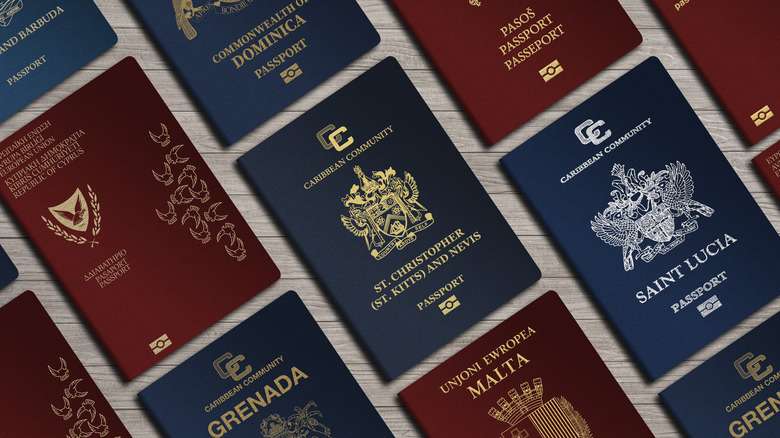How Citizenship Is Determined For Babies Born On International Flights
It's common knowledge that women who are late into their pregnancy are discouraged from flying. In general, it's pretty much safe to travel until 36 weeks. However, there are some international airlines that have stricter policies that don't allow pregnant women to travel as early as 28 weeks. Despite these restrictions, there have been occurrences of mothers giving birth while up in the air.
For instance, one woman from Utah was on a plane to Honolulu when she gave birth. According to the Washington Post, she wasn't aware that she was pregnant, and she started having abdominal pains during the flight. It turned out that she was already in labor, and luckily, a doctor and a few nurses were on the same airplane and safely delivered the baby. Apparently, the woman was 29 weeks pregnant. In cases such as this one, what is the baby's citizenship? The answer is not so cut and dry.
Several factors are considered concerning the baby's citizenship
There is no universal law that determines the citizenship of a baby who was born up in the air, and there are different factors that are looked at to determine the nationality. The United States and some other countries follow the rule of "jus soli," which means "right of the soil," It means that a baby born in an airplane flying over the U.S. territory is automatically given U.S. citizenship regardless of the parents' nationality (via Mental Floss). However, there are also circumstances wherein the baby can be granted dual citizenship if the parents are not U.S. citizens. Other countries, on the other hand, follow the "jus sanguinis" rule, which means "right of blood." That means that the baby's citizenship automatically follows the citizenship of the parents.
If the mother gives birth in a plane flying over international waters, the right of the soil doesn't apply. And if for some reason, the right of the blood isn't an option, the citizenship of the infant is dependent on which country the aircraft is registered, regardless of where it took off and where it's headed, according to How Stuff Works.

